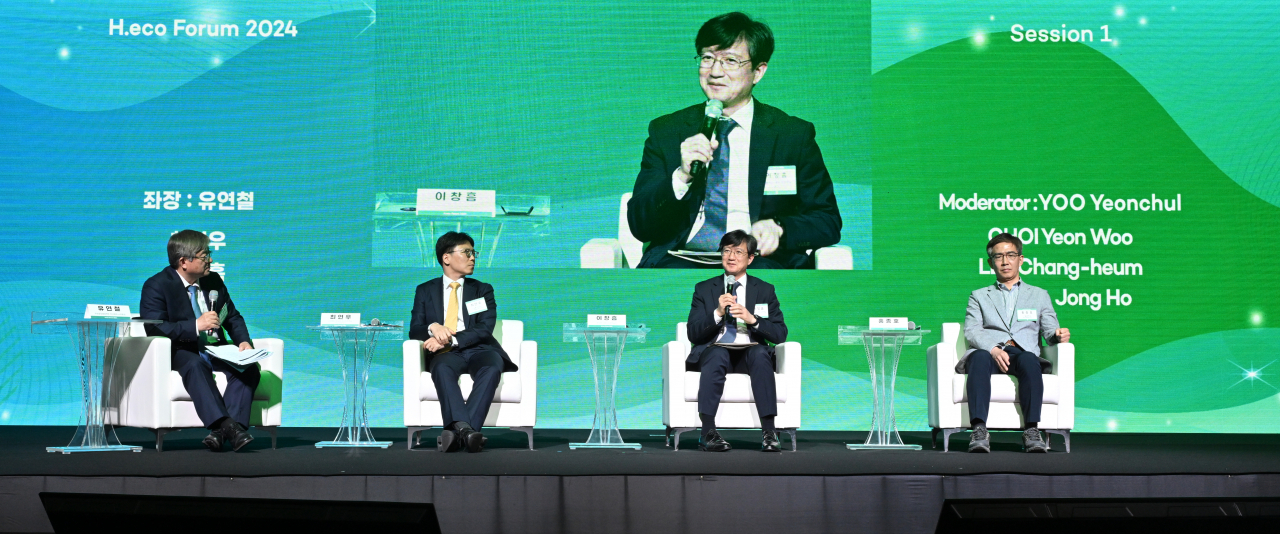[H.eco Forum] ‘Struggle for net zero, struggle for survival’
By Lee Jung-joo, Hwang Joo-youngPublished : May 22, 2024 - 16:10

For both developed and developing countries, carbon neutrality is no longer a choice, but a human survival strategy, experts and policymakers told the H.eco Forum 2024 on Wednesday in Seoul.
During a panel talk with the theme of “Energy Transition for Net Zero Roadmap,” Yoo Yeon-chul, executive director of the UN Global Impact Network Korea, shared how three core themes shaped recent notable international events, such as the 28th UN Climate Change Conference held in Dubai in 2023 and the Davos Forum held in January 2024. The themes are artificial intelligence, climate change and renewable energy.
“The greatest threat to humanity is the issue of survival,” said Yoo. “While nuclear weapons can be seen as an immediate threat, issues regarding climate change are slowly progressing threats that are closely related to human survival.”
Choi Yeon-woo, director general for energy policy from the Ministry of Trade, Industry and Energy, said that South Korea can strengthen industrial competitiveness while also achieving carbon neutrality by securing the stability and cost-effectiveness of energy supplies.
Choi also mentioned three ways in which energy policies can be shaped to achieve the net zero emissions target by 2050 -- an international scientific consensus that aims to reduce greenhouse gas emissions to as close to zero as possible. The three methods included the establishment of a carbon-free energy system, the expansion of renewable energy supplies such as solar, hydrogen and nuclear energy, and the acceleration of transitioning into the supply of zero-emission vehicles.
“In 2018, South Korea saw carbon emissions totaling 700 million tons, with 300 million tons of it coming from carbon emissions from burning fossil fuels,” said Choi. “Achieving carbon neutrality with renewable energy sources is urgent.”
Lee Chang-heum, Deputy Minister of Climate Change and Carbon Neutral Policy Office from the Ministry of Environment, also introduced the Korean government’s policies for carbon neutrality.
“All 17 local governments have established carbon basic plans to achieve the national goal of reducing carbon emissions by 40 percent by 2030,” he said.
Yet, economics professor Hong Jong-ho from Seoul National University’s Graduate School of Environment Studies criticized the government for lacking specific policies for transitioning toward renewable energy to achieve net zero.
“Korea is a leader in its capacity for nuclear power, relative to its total land area,” said Hong. “Companies need clear directions on transitioning to clean energy and it is crucial to determine what should be the backbone of energy policies at this current moment.”




















![[Today’s K-pop] Treasure to publish magazine for debut anniversary](http://res.heraldm.com/phpwas/restmb_idxmake.php?idx=642&simg=/content/image/2024/07/26/20240726050551_0.jpg&u=)